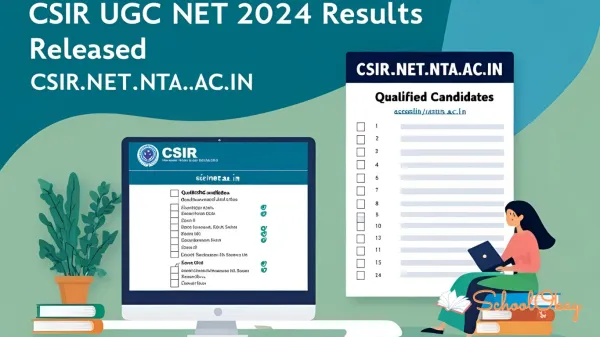Why JEE Advanced is tough to Crack ?
The Joint Entrance Examination (Advanced) is widely considered to be one of the most difficult examinations in India.

Overview
The Joint Entrance Examination (Advanced) is widely considered to be one of the most difficult examinations in India. It is undeniably a difficult nut to crack. However, because this exam is only available to the top 2,50,000 JEE main qualifiers, you can be certain that the difficulty level will be high. It is regarded as a difficult examination due to the manner in which the candidates who appear for it are tested.
It is designed in such a way that it assesses the candidate's analytical thinking ability. Not to mention that JEE Advanced is a difficult exam that only a small number of people are qualified to take.
This article will go over the reasons why the exam is considered difficult, strategies for passing it, and what you will need to know to pass the exam. More information can be found by continuing to read.
What is it about the JEE Advanced examination that makes it so difficult?
Each year, nearly 250,000 people register to take the JEE Advanced examination, implying that less than 10% of those who register to take the JEE Advanced area are able to clear it. Out of near lakes of candidates who appear in JEE mains only 4% are able to enter into JEE Advanced
The fact that this exam is analytical in nature is the main reason for its difficulty. Students must be proficient in all three subjects, namely Physics, Chemistry, and Mathematics, in order to pass the exam.
This is due, in part, to the fact that the examination is designed in such a way that the candidate who wishes to pass must have in-depth knowledge of all three subjects that will be tested. In order to be admitted to a reputable institution for further study, students must not only pass the examination but also achieve a score that is higher than the cutoff range.
This exam must be taken seriously because it is for admission to the best engineering colleges in India. As a result, it is clear that the examination will be difficult. As a result, students must prepare extensively in order to pass the exam.
The fact that thousands of students compete for admission to the Indian Institutes of Technology (IITs) is the primary reason for the exam's difficulty. The Indian Institute of Technology (IIT) is one of the best engineering institutes because it not only provides students with the best facilities but also has an unrivaled faculty.
Because the institution cannot admit all of the thousands of applicants, the authorities are forced to increase the difficulty of the examination in order to select the most qualified candidates.
Furthermore, not everyone is capable of instructing such bright students; therefore, a faculty that is not only dedicated to teaching the students but also eager to learn from them at all times is required.
Except for the Indian Institute of Technology, no other institution has such a high-level faculty. In other words, if passing the exam is difficult, there is almost certainly a reason for it.
Eligibility to take the JEE Advanced exam
Candidates must have a high score on the JEE mains examination to be eligible to sit for the JEE Advanced examination.
Candidates who wish to sit for the JEE Advanced examination must meet the JCB's requirements. Candidates who do not meet these requirements will be denied the opportunity to take the exam.
| Categories |
|---|
| General |
| Ews |
| OBS |
| SC |
Joint Entrance Examination Syllabus (Advanced)
The syllabus for JEE Mains and Advanced is the same as it is for JEE Mains and Advanced. The subjects that must be thoroughly studied in order to pass the JEE Advanced examination are physics, chemistry, and mathematics.
Students can prepare for the examination by consulting NCERT textbooks, and candidates can prepare by consulting JEE Advanced Special Books.
JEE Advanced pattern
The JEE Advanced, like the JEE Mains, is a computer-based exam. This is a multiple-choice admissions exam.
All candidates must complete two articles in a total of three hours.
Because the exam consists of two three-hour articles, the total time allotted for the exam is six hours. As a result, students must maintain their speed, as well as their time management and problem-solving skills, throughout the semester.
Language papers can be expected
In contrast to the JEE mains, students can only answer the paper in one of two languages: Hindi or English.
The total number of attempts.
According to the rules, a candidate may only take the JEE Advanced examination twice in his or her lifetime. There will be no further attempts.
Tips to excel in JEE Advanced examination.
- After passing JEE Mains, many candidates give up on studying for the Advanced exam, which is a mistake because the Advanced exam is significantly more difficult than JEE Mains and requires continuous practice and consistency on their part.
- Finish a few JEE Advanced papers from the previous year. Understand the paper's format, give mock tests, and thoroughly prepare for the exam.
- Nearly 80% of the examination is made up of mathematical concepts. As a result, it is strongly advised that students concentrate on mathematics and prepare as much as possible using special JEE Advanced books.
- Instead of focusing on new topics, spend more time reviewing old ones. The most crucial step is revision. The more you revise, the more confident you'll be in your knowledge of your subjects. As a result, you will be successful.
- Maintain a strict time management schedule and study for at least 6 to 7 hours per day. Keep in mind that with a few more months of planning, you will be able to successfully complete your goal.
- Maintain your concentration and increase your stamina so that you can finish the 6-hour exam on time.
- Never lose faith in yourself; it is the key to achieving your goals. Maintain your confidence, and you will undoubtedly pass the exam.
Conclusion
In India, the JEE Advanced examination is widely regarded as the most difficult of all the examinations to pass. As a result, it has remained one of India's most difficult examinations for several decades.
If you have done thorough preparation, consistent revision, and maintained a laser-like focus, you will pass the exam with flying colors. Maintaining a proper timetable and effective time management will allow you to stand out from the crowd and become more successful. Remember that consistency is essential for success.
As long as you keep up your consistency and confidence, you will almost certainly get into the college of your choice with a good score in the exam.
Related articles;
Books for IIT JEE preparation.
How to prepare for JEE main exam.
Books for JEE advance preparation.
How to stay focused on studies.
Why it is important for students to read books daily.
Share and subscribe to the blog by email.





